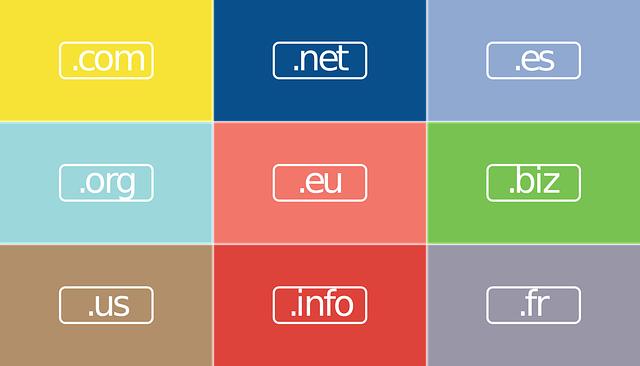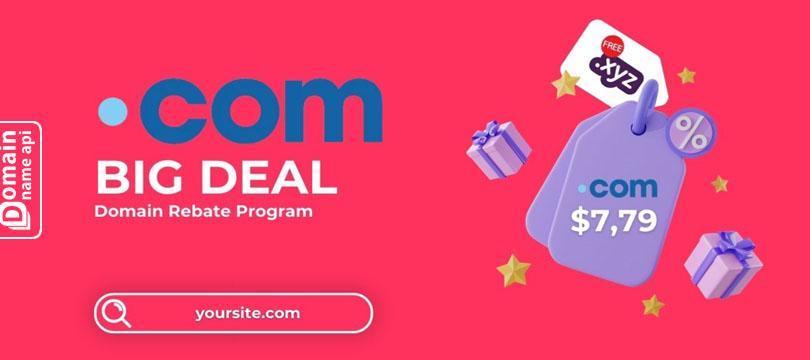Table of Contents
- Understanding the Factors That Influence Domain Pricing
- Comparing Domain Registrars to Find the Best Value
- Exploring the Impact of Domain Extensions on Cost
- Hidden Fees and Costs to Watch Out For
- Tips for Securing Discounts on Domain Purchases
- Q&A
- To Wrap It Up
Understanding the Factors That Influence Domain Pricing
When considering the cost of purchasing a domain, several key factors come into play that can significantly impact the final price. First and foremost, the domain extension you choose can affect pricing. Common extensions like .com or .net tend to be more expensive due to their popularity and widespread usage, whereas lesser-known extensions such as .info or .biz may be more affordable but might not carry the same prestige or recognition.
Another important factor is the length and uniqueness of the domain name itself. Short, memorable domain names that are easy to spell and pronounce are generally in higher demand and can command higher prices. Furthermore, if the domain consists of popular keywords that align with high-traffic search terms, this also drives up the price. Domain names that are already owned can also influence costs, particularly if the current owner is asking for a premium price to transfer ownership.
Market conditions and marketplaces also play a significant role in determining domain prices. The resale value of a domain can fluctuate based on trends within specific industries or market demands. Additionally, domains sold on auctions or through brokers may come with elevated fees, as competitive bidding can drive prices even higher. Here’s a quick overview of various factors affecting domain costs:
| Factor | Description |
|---|---|
| Domain Extension | Influences popularity and cost |
| Length and Uniqueness | Shorter names usually cost more |
| Market Conditions | Current trends can increase value |


Comparing Domain Registrars to Find the Best Value
When selecting a domain registrar, it’s crucial to assess a variety of factors that influence overall value. Each registrar may offer different features and pricing structures, making it essential for buyers to consider not only the initial registration costs but also the long-term fees associated with domain management. The following are key aspects to examine:
- Pricing Structure: Look out for promotional rates that might spike after the first year. Compare renewal fees across registrars to understand the total cost of ownership.
- Transfer Fees: If you decide to change registrars later, the associated transfer fees can impact your budget. Some registrars charge substantial fees to transfer domains away.
- Included Features: Evaluate what services come bundled with the domain registration. Common inclusions may be WHOIS privacy protection, email forwarding, and DNS management.
Another significant aspect to consider is customer support, which can be a lifesaver during domain-related issues. Quality support can save you time and hassle, especially if you’re not technically inclined. Assess registrars by checking:
- Availability: Is support available 24/7 or only during specific hours?
- Support Channels: What options do you have? Look for comprehensive support through live chat, phone, and email.
- User Reviews: Research user experiences regarding response times and problem resolution efficiencies.
understanding the broader ecosystem of domain registrars can enhance your decision-making process. To compare registrars effectively, consider creating a comparison table that outlines various features and prices. Here’s an example:
| Registrar | Initial Cost | Renewal Cost | WHOIS Privacy | Customer Support |
|---|---|---|---|---|
| Registrar A | $9.99 | $14.99 | Included | 24/7 Live Chat |
| Registrar B | $11.99 | $15.99 | Available ($2.99/year) | Limited Hours |
| Registrar C | $8.99 | $12.99 | Included | 24/7 Phone Support |


Exploring the Impact of Domain Extensions on Cost
When considering the cost of acquiring a domain, the extension you choose can significantly influence the price and potential return on investment. Domain extensions, or top-level domains (TLDs), categorize domains and can range from commercial and geographical to niche-specific options. For instance, .com domains are often the most sought after due to their familiarity and perceived credibility, making them typically more expensive than less common extensions. Meanwhile, newer TLDs such as .tech, .design, or .store, while often more affordable, may carry risks related to brand recognition and customer trust.
The pricing variations among domain extensions can often be attributed to factors such as market demand, perceived value, and specific functionalities associated with each TLD. For example, non-profit organizations often opt for .org domains, which not only tend to be more affordable but also align closely with their mission-driven objectives. On the other hand, geographic domains like .nyc or .london can increase in cost due to their niche market targeting. A prospective buyer must weigh these considerations against their business strategy to determine the most effective investment.
| Domain Extension | Average Cost | Use Cases |
|---|---|---|
| .com | $10 – $20 | Business sites, ecommerce |
| .org | $8 – $15 | Non-profits, community projects |
| .info | $5 – $10 | Information sites, personal blogs |
| .tech | $15 - $30 | Technology-related businesses |
In addition to upfront costs, it is also important to consider potential ongoing expenses such as renewal fees, privacy protection, and additional features provided by registrars. Extensions with less competition might offer an appealing initial cost, but they could lead to unforeseen expenses in marketing and branding efforts to build credibility. Understanding the landscape of domain extensions will not only help you select the best fit for your needs but also align your overall online strategy with budget considerations.


Hidden Fees and Costs to Watch Out For
When purchasing a domain, it’s essential to delve beyond the advertised price to uncover potential hidden fees. The initial cost is often just the tip of the iceberg. Many domain registrars implement additional charges that can quickly inflate the overall expense. Be on the lookout for registration fees, renewal costs, and transfer fees, as these can dramatically affect your budget over time.
Moreover, other services can come with unexpected price tags. Some registrars may offer enticing promotions for the first year, but subsequent renewal rates can skyrocket. Here are some common hidden fees you might encounter:
- WHOIS Privacy Protection: This service helps keep your personal information private, but it often comes with an annual fee.
- DNS Management: If you want to customize your domain’s DNS settings, some registrars may charge for this service.
- SSL Certificates: Essential for website security, SSL certificates can also add to your costs, especially if not included in your initial plan.
For a clearer view of how costs can accumulate, consider the following table comparing various registrars and their additional fees:
| Registrar | Initial Cost | Renewal Cost | WHOIS Privacy | SSL Certificate |
|---|---|---|---|---|
| Registrar A | $9.99 | $14.99 | $4.99/year | $69.99/year |
| Registrar B | $11.99 | $12.99 | $2.99/year | Included |
| Registrar C | $8.99 | $15.99 | Free | $49.99/year |
Understanding these potential costs is crucial for making informed decisions. Always read the fine print and ask questions about any fees that could impact your total expenditure, ensuring that you aren’t caught off guard as you manage your online presence.


Tips for Securing Discounts on Domain Purchases
When looking to save money on your domain purchases, timing can be everything. Many registrars offer discounts during specific seasons, such as Black Friday, Cyber Monday, or even during anniversary celebrations. Keeping an eye out for these promotions can lead to substantial savings. You can also subscribe to newsletters from domain registrars to stay updated on their latest deals and flash sales, ensuring no opportunity slips through the cracks.
Another effective strategy is to explore coupon and cashback websites. These platforms often feature exclusive discount codes for popular domain registrars. Before completing your purchase, take a moment to search for codes on sites like RetailMeNot or Honey. Furthermore, utilizing cashback offers from sites such as Rakuten can give you a percentage back on your domain spend, providing additional savings in the long run.
Additionally, consider the benefits of buying domain names in bulk. If you are planning to register multiple domains, look for registrars that offer bulk purchase discounts. Many services have tiered pricing structures that reward larger purchases with lower per-domain costs. Below is a simple comparison of potential bulk savings:
| Number of Domains | Regular Price per Domain | Bulk Price per Domain | Total Savings |
|---|---|---|---|
| 1 | $15 | $15 | $0 |
| 5 | $15 | $12 | $15 |
| 10 | $15 | $10 | $50 |
| 20 | $15 | $8 | $140 |
Ultimately, research is key when searching for the best domain purchase discounts. Compare multiple registrars, as prices and features can vary widely. Look for additional benefits like free WHOIS privacy or email forwarding, which can add value to your purchase beyond just the price tag. By combining these techniques, you can maximize your savings and find the best deals when buying domains.
Q&A
Q&A: Understanding Domain Purchase Costs
Q1: What factors influence the cost of buying a domain name?
A1: The price of a domain name can vary significantly based on several factors. These include the domain extension (like .com, .org, or .net), the popularity of the chosen name, and its length. Premium domain names, which are typically short, memorable, and keyword-rich, often come with a higher price tag due to their desirability. Additionally, the registrar you choose may have different pricing structures and promotional offers that can impact final costs.Q2: How much does a standard domain name typically cost?
A2: On average, a standard domain name can cost anywhere from $10 to $20 per year. However, prices can shoot up if you opt for a premium domain or a more specialized extension. Keep in mind that these costs can also include renewal fees, which can be similar or higher than the initial purchase price.Q3: Are there additional costs associated with buying a domain?
A3: Yes, when purchasing a domain, additional costs may arise. These can include:- Privacy Protection: Often offered at an extra charge, this service keeps your personal information confidential in the WHOIS database.
- Domain Renewal: Domains need to be renewed annually, and renewal prices may differ from initial purchase costs.
- Transfer Fees: If you decide to switch to a different registrar, there could be transfer fees involved.
Q4: Can I find free domain names, and are they worth it?
A4: While some providers offer free domains, often these come with limitations, such as specific extensions or ties to web hosting services. Free domains may also have less credibility compared to a paid domain. It’s essential to weigh the pros and cons to determine if a free domain meets your long-term branding needs.Q5: What is the best way to choose a domain name that won’t break the bank?
A5: To find an affordable domain name that suits your needs:- Be Creative: Use unique combinations of keywords to find a less popular, potentially cheaper domain.
- Consider Different Extensions: Explore alternatives like .co or .io, which may have more available options at lower prices.
- Monitor Promotions: Keep an eye out for discounts from registrars, especially during sales events, which can help you snag a great deal.
Q6: How do I purchase a domain name and what steps should I follow?
A6: Purchasing a domain name involves a few straightforward steps:- Research: Find an appealing name that resonates with your brand and check if it’s available using a domain search tool.
- Choose a Registrar: Select a reputable registrar to purchase your domain securely.
- Register: Follow the registrar’s process to complete your purchase, entering your details and payment information.
- Manage Your Domain: After purchasing, familiarize yourself with your registrar’s management panel to update settings, renew, or secure your domain.
Q7: What should I know before renewing my domain?
A7: Before renewing your domain, check the renewal price as it may differ from your initial purchase. Setting up automatic renewal can prevent accidental expiration, helping you maintain ownership seamlessly. Additionally, add a reminder for when the renewal date approaches to review any changes in fees or services.By understanding these factors and questions, you can better navigate the domain buying process and ensure you make a choice that aligns with your brand and budget.

